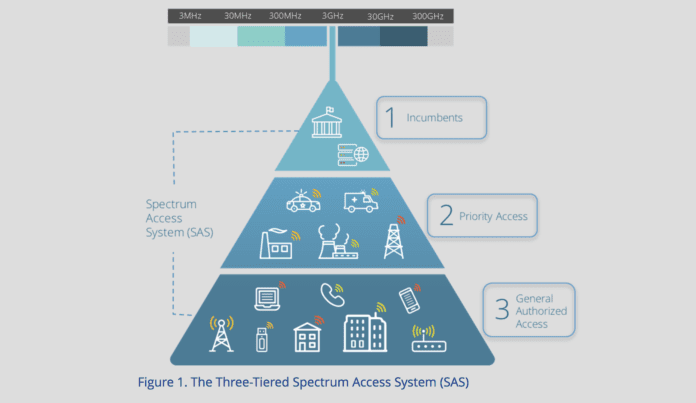ESC approvals a key step in commercializing CBRS
Commercial access to the 3.5 GHz Citizens Broadband Radio Service band by operators and enterprises continues to take shape as the complex regulatory and approval process hit another milestone this week. The U.S. Federal Communications Commission, after extensive testing from stakeholders, approved Environmental Sensing Capability (ESC) network plans submitted by CommScope, Federated Wireless and Google.
“Today we are one step closer to fully realizing the massive potential of commercial OnGo deployments in the CBRS band,” Alan Ewing, executive director of the CBRS Alliance, said in a statement. “ESC coverage is a key component that will allow for high availability of CBRS spectrum along the country’s coastal regions, where more than 50% of U.S. residents live, while fully protecting important government operations. This process is built on unprecedented collaboration between the FCC, DoD, NTIA, WInnForum, and the more than 135 members of the CBRS Alliance.”
The Department of Defense uses the 3.5 GHz band for naval radar. To open it up for other uses, a dynamic spectrum access system (SAS) will govern three-tiered use of the frequencies with the Navy maintaining its incumbent status with priority access and general access rounding out the access levels. The ESC will feed information into the SAS to ensure seamless operations.
The CBRS Alliance estimates “full commercial service” could be in place by September.
Analyst Adlane Fellah, founder of Maravedis, detailed the CBRS regulatory process in this piece, noting, “The idea that an enterprise can get easy access to use CBRS spectrum to deploy their own LTE wireless networks is an exciting one. CBRS is a business and technological puzzle, and many pieces still need to come together for this novel approach to spectrum sharing to work. In this article we focus our attention on the various regulatory processes still ahead before OnGo systems go live as the terms and steps can be confusing.”

